The process of renting scuba diving gear can be tedious and frustrating.
As a certified scuba diver, buying your own scuba diving gear is often one of the first steps once you complete your Open Water course. Sure, owning your own personal equipment is expensive if you only hit the water a few times per year, but if you go out a few times per week or month, divers will find that there are many advantages to having your own set of scuba gear.
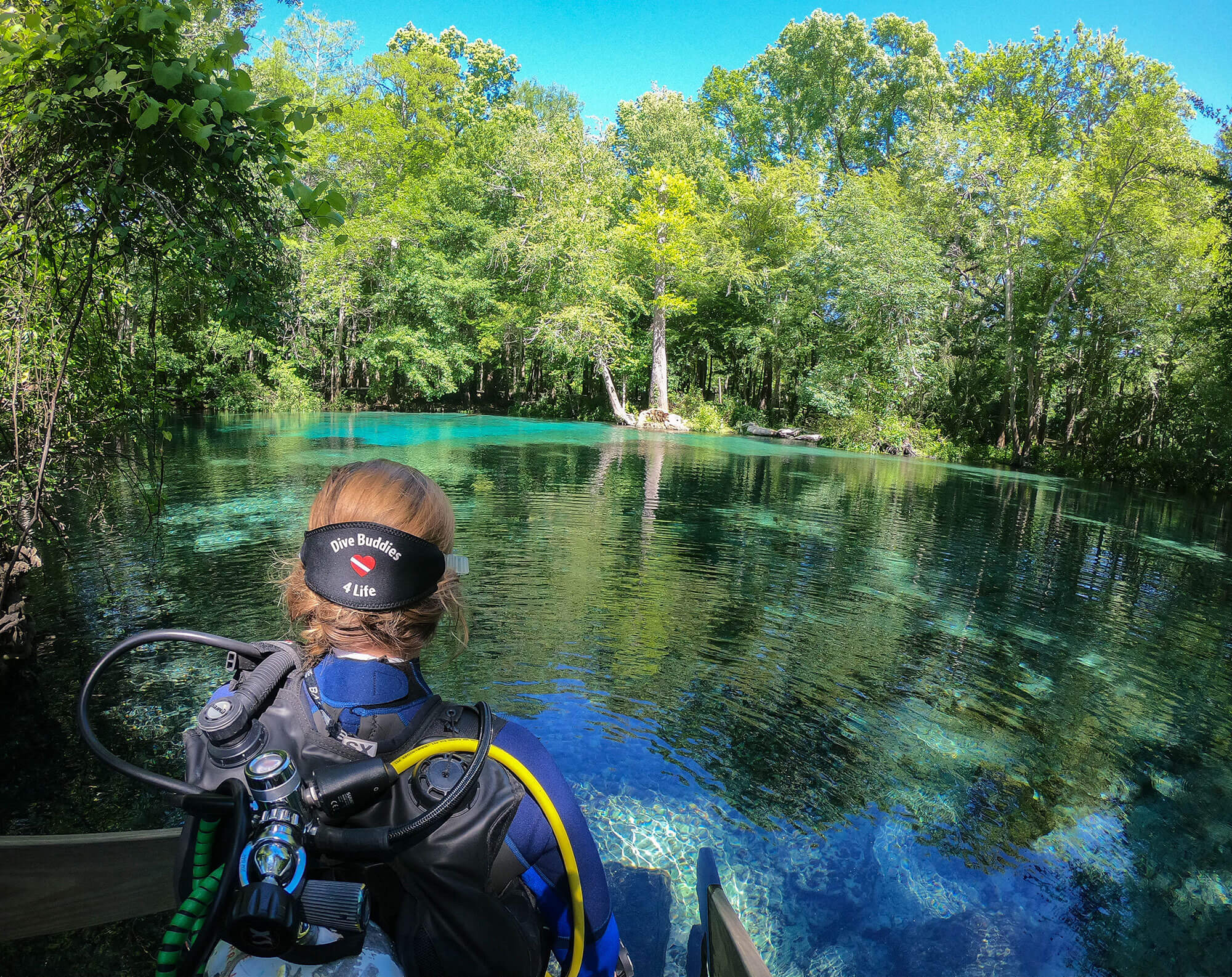
Here are a few important reasons why you should own your own diver gear:
The price of rental gear can easily fall between $30-$70 per day. Although this may not seem like much at first, the cost adds up pretty quickly after a few dives, and even more so if you are on holidays with many days of back to back diving.
If you love scuba diving and are a regular diver, you’ll actually save money by owning and maintaining a personal set of gear. Let’s say a beginner set of warm water diving gear costs on average of $1600. At this price, you only need to go diving 32 times if the local rental cost is $50 to break even. As someone who loves to scuba dive, that is easily achievable in a dive season.
On top of saving money by not renting, once you own your gear, you can always resell it to recoup costs should you decide to upgrade.
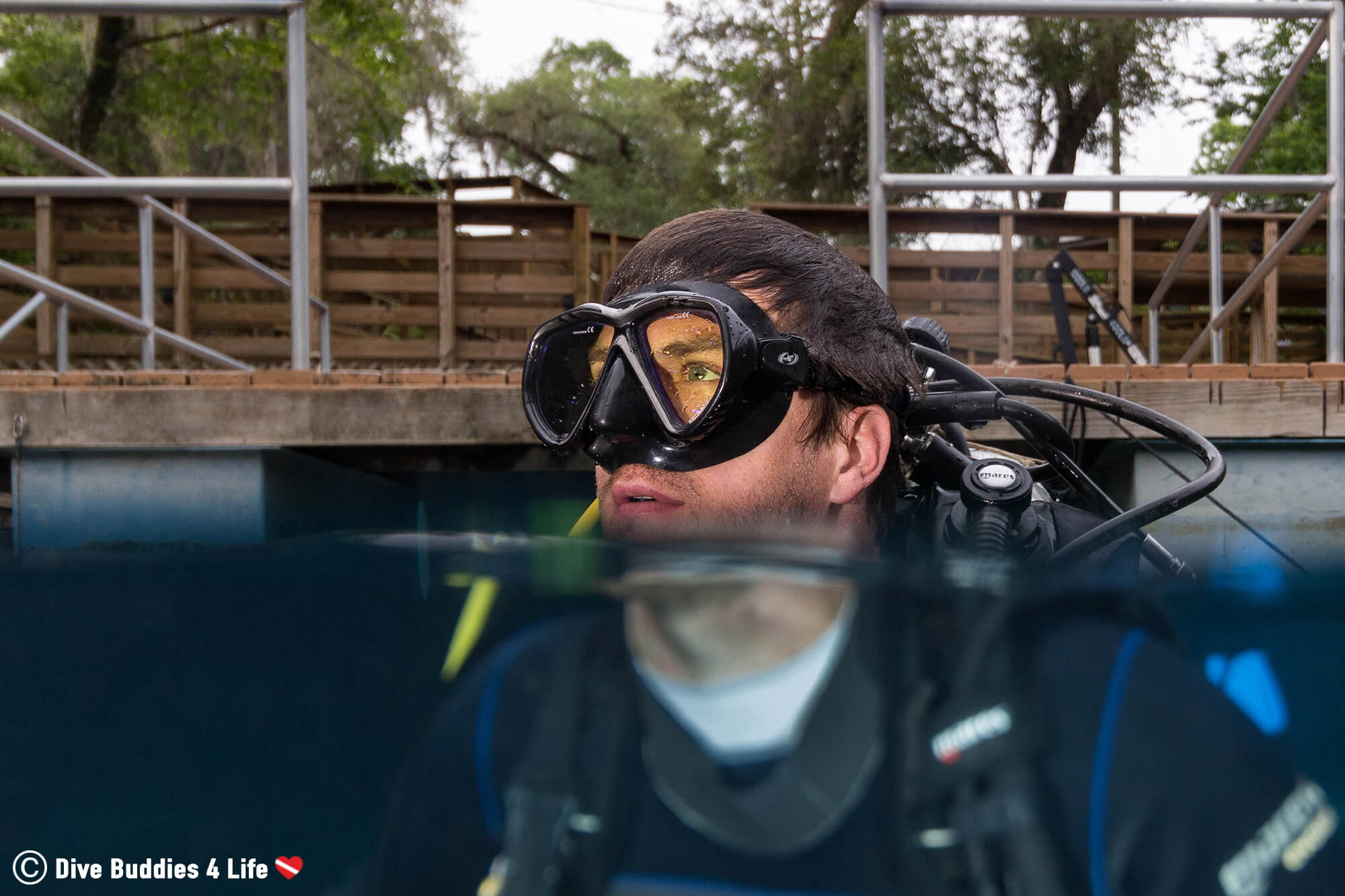
Just because you are renting a scuba kit, does not mean that said gear has been properly disinfected from the previous user.
While I love scuba divers as much as the next person, I’ll be the first to admit, we are a very unhygienic bunch. It’s not uncommon for a diver to spit into the lens of their mask, vomit through their regulator on rough seas or pee in their wetsuit in order to stay warm.
Everything from the wetsuit you are wearing to the mask and regulator you are renting has likely been tainted in some shape or form. And while shops may rinse equipment in freshwater basins – it takes more than freshwater to cleanse the bacteria, viruses, and fungi of these unmentionables.
Having your own equipment means that you are spitting into YOUR own mask, and swimming in YOUR own pee-soaked wetsuit, which in retrospect is leaps and bounds more hygienic than the alternative.
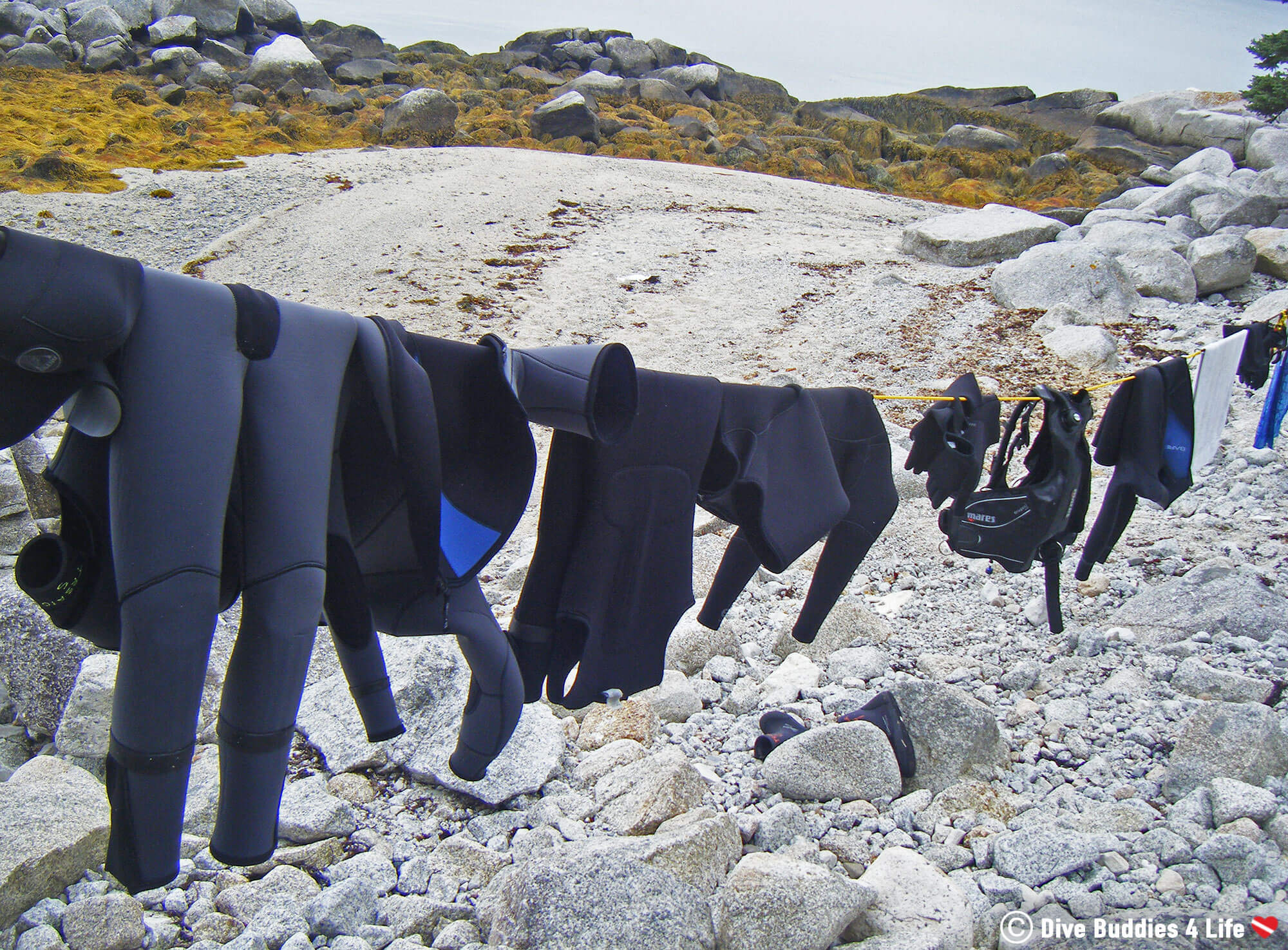
When it comes to a wetsuit, BCD, mask and other pieces of dive gear, there is no standard sizing. A single individual could fall into the small size in one brand, but a medium in another. And for women, it can even be trickier as some brands don’t distinguish between male and female.
Sometimes it’s impossible to determine if something fits correctly until you’re in the water. That mask that seemed to fit fine in the shop, will it actually seal properly underwater? Those fins that fit your ankles well on dry land, will they leave you with blisters kicking through the water? Wetsuits are also notorious pieces of dive gear when they don’t fit. Too big and you compromise your thermal protection, too small and you won’t be able to move.
Dive shops vary in what rental brands they carry and in what sizes. There is also something to be said about availability. Even if you know your fit in a certain brand, the shop might not have your desired rental available – leaving you with a lesser fitting setup.
Having your own personal set of dive gear means that on every single dive, you’ll know that you have proper fitting equipment.
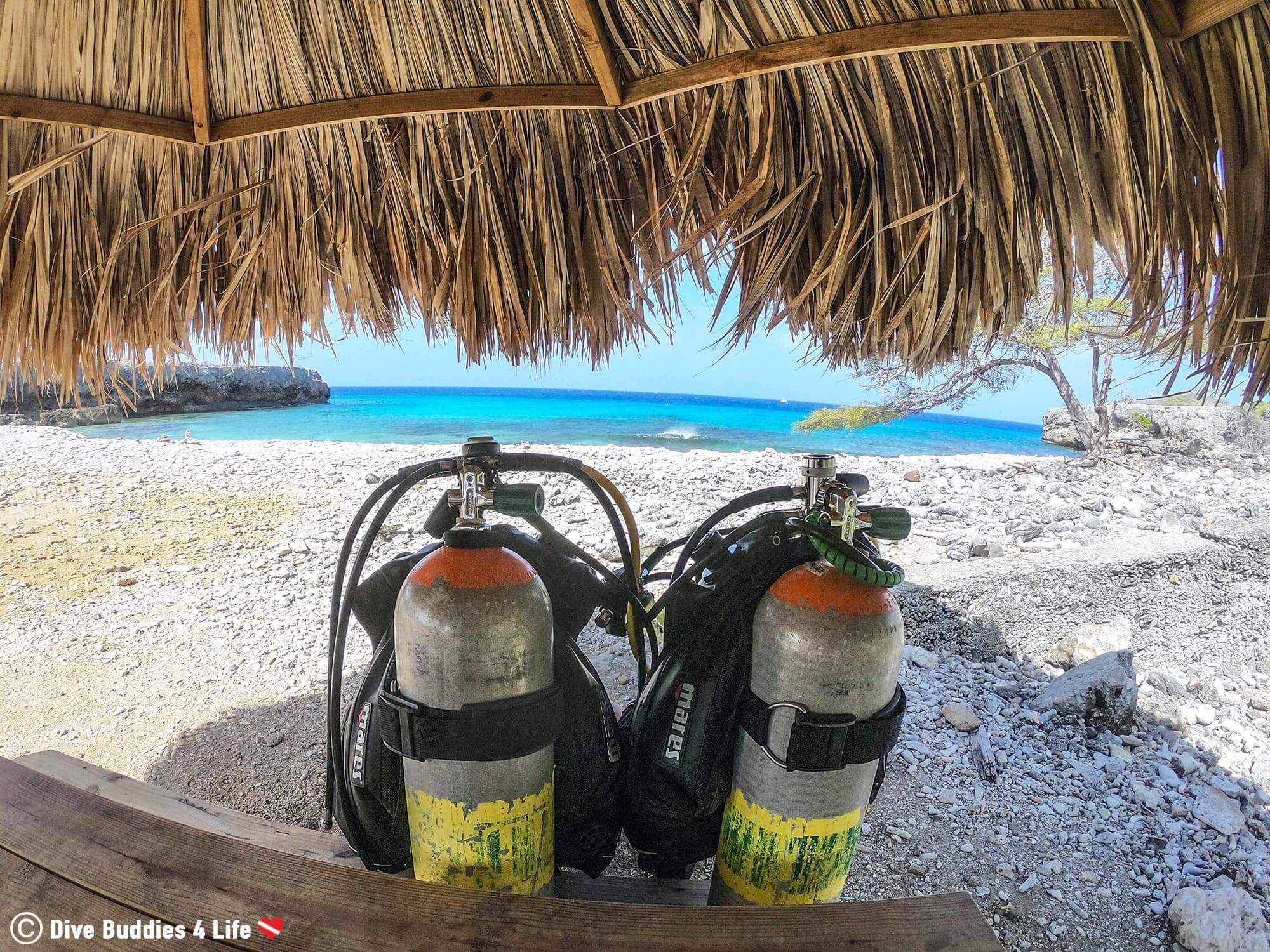
Being familiar with the dive gear you are using is important not only to ensure you are using it correctly but also for the timely response during an emergency situation.
According to the Divers Alert Network, equipment problems account for 15% of all diver related deaths. This doesn’t necessarily mean equipment malfunction, but rather user error because a diver is unfamiliar with equipment or doesn’t maintain it properly.
With most dive gear it takes practice and time for tasks to become second nature. Having a personal set of gear is the best way to become an expert on how to use everything and respond with familiarity in a problem situation. It also gives you a better understanding of each individual piece and how it should be maintained on a daily, monthly and yearly basis.
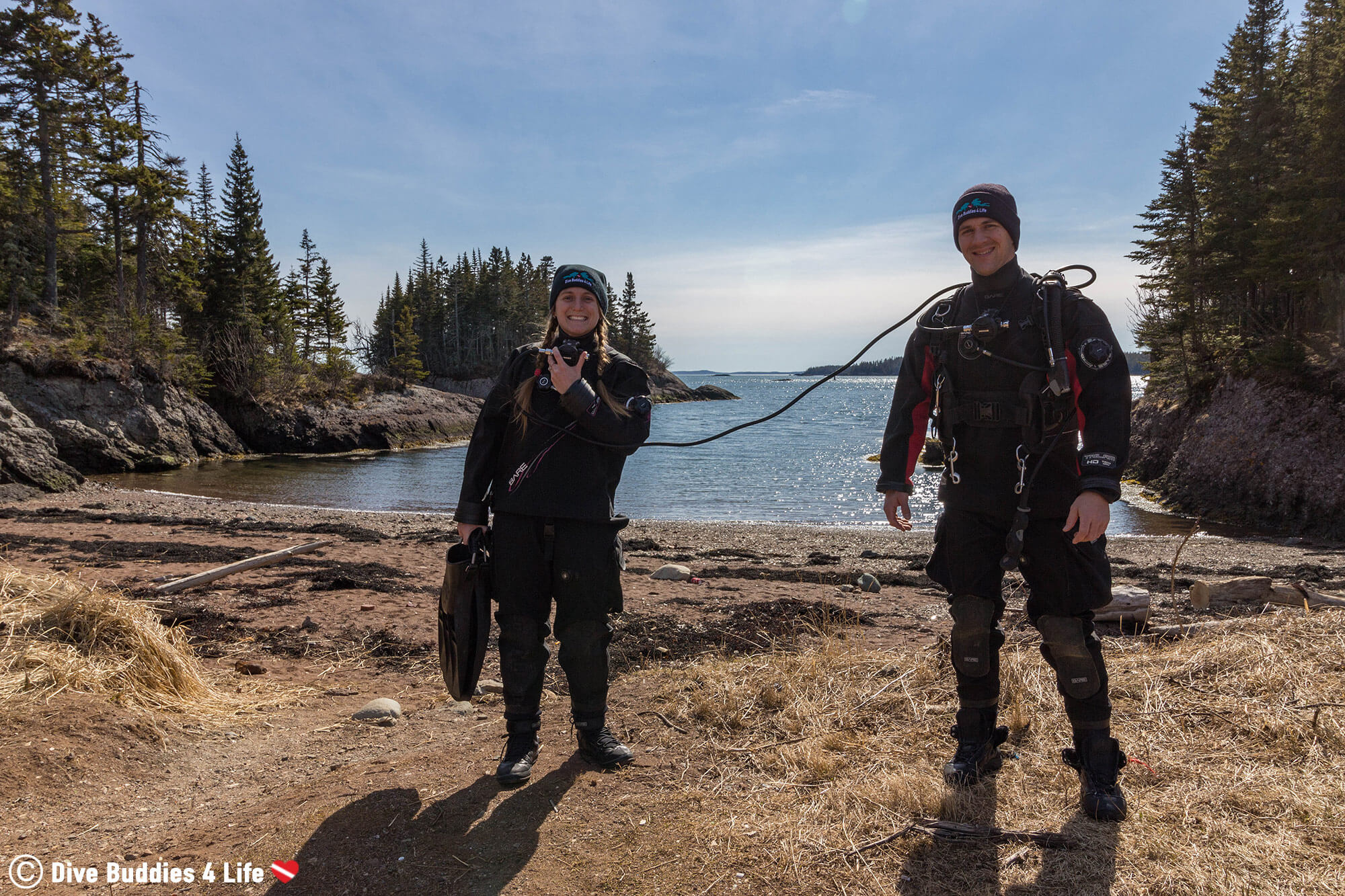
Not all dive shops are created equal, and because of this rental gear can vary from shop to shop. Some shops can be hyper-vigilant about keeping gear in tip-top shape, while other shops have gear in a much poorer condition. And it’s not just shops, it only takes one careless diver to mistreat equipment they don’t own.
The problem with renting gear is that some equipment issues aren’t obvious until you start diving. Whether it’s a leaking drysuit or a compromised backup regulator – some things don’t come to light during the pre-dive check or while sorting equipment. Sometimes you need to be in the water.
As much as we hope dive shops check and double-check rental equipment after it has been used, the reality is shops are often overworked with minimal staff. They often have no time to fully test EVERY piece of equipment moving in and out of the facility.
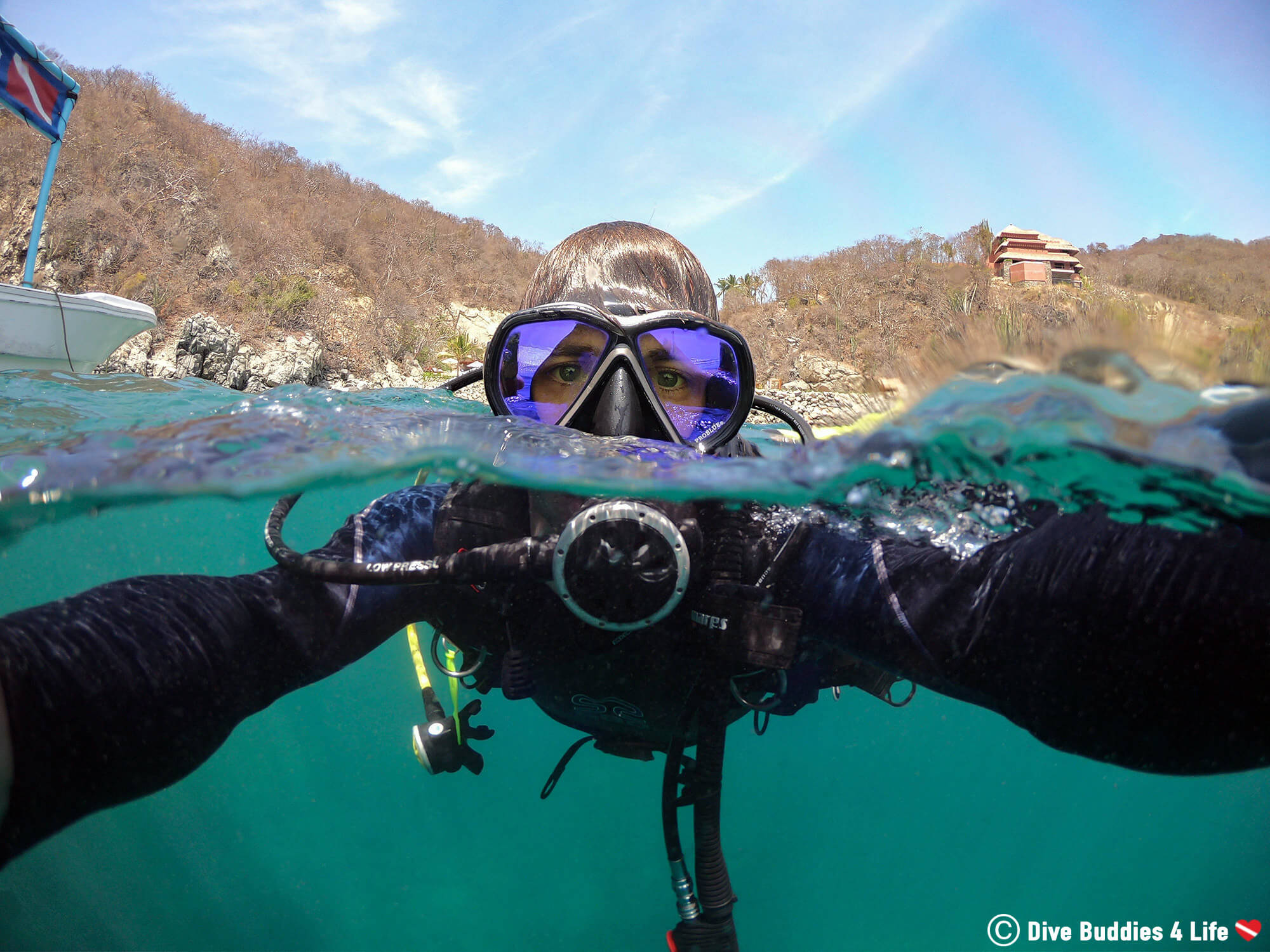
It goes without saying that when you own a personal set of dive gear you’ll want to get as many dive out of your equipment as possible.
This leaves room for spontaneous dives with friends, where you don’t need to suffer through the dive shop rental process several hours before you are hitting the water. After all, who wants to spend time at a dive shop sorting and searching for rental equipment when they could be underwater.
When you own your own set of gear, you can simply show up before the dive and go!
At the price of scuba diving equipment, it certainly doesn’t make sense to splurge on gear all at once. Most divers build their kit over time, on a piece by piece basis as their budget allows. Scuba diving can be a personal thing, and what works for one diver might not necessarily be the best option for you.
Bearing that in mind, here are our recommendations in terms of the most essential core pieces of gear:
Dive masks are your window into the underwater world. They are also one of the most mistreated pieces of rental equipment ending up on the charter floor or crunched in the bottom of a dive bag. Masks get the short end of the stick when it comes to replacement, after all, a shop’s priority is to replace gear linked to safety over a scratched lens on a dive mask. A dive mask should be one of the first pieces of equipment you purchase. It gives you the most benefit for cost and it’s relatively cheap compared to most other gear components.
There is nothing worse than a pair of fins that give your leg cramps or cause blisters. This, unfortunately, is often the case for those renting this piece of scuba gear. Dive fins come in many different shapes and sizes. In terms of cost and practicality, they also tend to be the second piece of equipment new diver purchases.
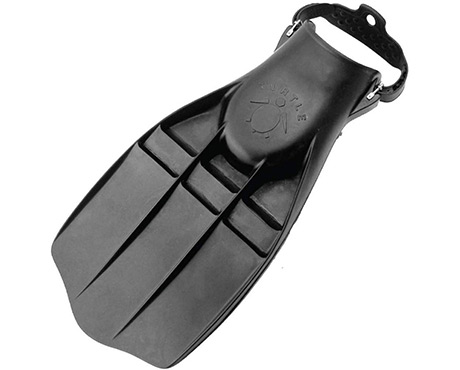
When diving in cold water with our drysuits we have our classic Turtle fins made by XS scuba. Turtle fins are a favorite among professional and technical divers for their design – making them great for penetration diving and generating good energy transfer.
Many dive shops don’t offer dive computers for rent or include them at an additional cost to the bulk gear rental. Computers are an important piece of equipment that keeps track of your depth, time at depth and required safety stops, meaning that you don’t need to depend on a guide. A beginner dive computer doesn’t need to be fancy or expensive, just something with a big display for ease of use.
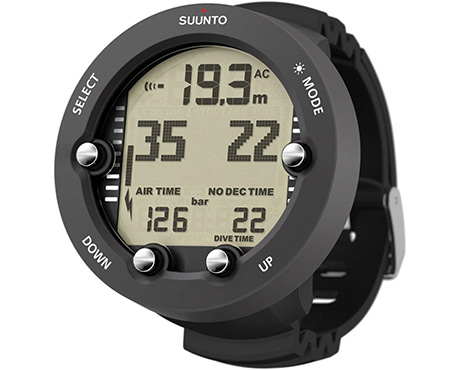
For scuba diving, we use (and love) the Suunto Vyper Novo. This dive computer has an optional wireless air integration feature that measures tank pressure and air consumption. The Vyper Novo is programmable for 21% to 99% oxygen mixtures and can display air, nitrox, gauge, and free dive modes.
Your regulator is your life support system when underwater. It is one, if not THE, most important piece of scuba diving gear you will buy. Therefore it makes sense to own your own so YOU can take responsibility for your own safety. Regulators are a more costly piece of diving equipment, however, if you do your research and speak with a knowledgeable seasoned diver, a beginner will find that some regulator brands can last a very long time.
What was your first piece of scuba gear? Do you still have/use this item or have you upgraded your kit?
Writers Note: This post may contain affiliate links. We will make a small commission if you make a purchase through one of these links, at no extra cost to you. See full disclosure and disclaimer policy here.

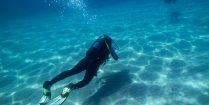
Thinking about sprouting gills and making the plunge into the underwater world? Find out if you're cut out to become an Open Water scuba diver.
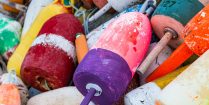
Sometimes a dive doesn’t go according to plan and when that happens, it’s important to be seen. Learn all about surface markers and why you should have one.
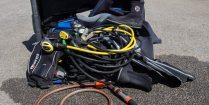
Everybody loves the idea of scuba diving, but the aspect of post dive cleanup is a much different story. It’s long, it’s tedious and it almost impossible to do it without getting wet - yet again.
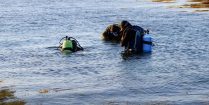
It's not easy being green in a day and age where everything is plastic and waste. Let sustainability lead the way as you explore the underwater world.
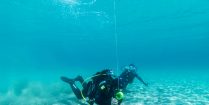
For some scuba diving is more than just a hobby - it’s a lifestyle. Here is everything you should know about getting your divemaster certification.
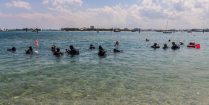
Organizing a dive vacation can be a challenge. To help, keep these four questions in mind when planning your next scuba diving vacation.

Taking your love for photography to new depths can be a challenge. Here are eight tips and tricks for a beginner underwater photographer.
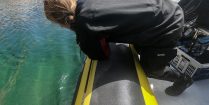
As a diver, sometimes you get hit with seasickness. Here are our solutions to dealing with seasickness before and during your dive.
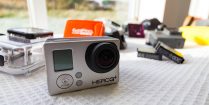
Problem: you want to take decent underwater pictures but good photography gear is just so expensive. Solution: learn how to take good underwater pictures with your handy dandy GoPro, it's easier than you think.

Are you a pig on air? You are not alone. Find out how you can get more out of your scuba diving tank.

Hair versus scuba, now that's a combination that doesn't mix. So how do you stay away from the tares, tangles and hours upon hours of post-dive hair brushing?
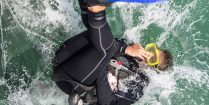
No matter what level of diver you are, scuba backroll entries are a fun-filled way to get off the dive boat and get into the water.

Not all things underwater can be seen at first glance - for some, you need to take a closer look. Macro photography is the art of close-up photography on small subjects.

How interesting that you talk about how most divers build their scuba diving equipment over time. I want to try snorkeling this summer! I will find a good Puerto Rico snorkeling trip service.